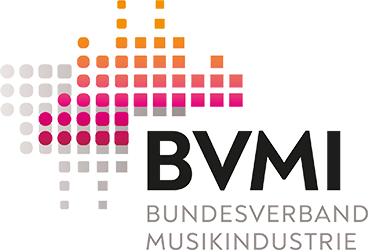KONTAKT
“A tremendous opportunity to create much needed clarity for the digital licensing business in the interest of creatives and their partners.”
BVMI reiterates urgent need for EU copyright reform
This Thursday, the EU Parliament will vote on a proposal designed to reform EU copyright law. Among other things, the proposal foresees giving a greater share of responsibility and liability to online user upload content services. With a view to this impending vote, Germany’s Bundesverband Musikindustrie (Federal Music Industry Association, BVMI) is eager to call attention to the urgent nature of these reform proposals for the cultural and creative industries. For example, current laws allow YouTube – de facto the largest music streaming service in the world – to continue to portray itself as a “technically neutral” service provider, thus circumventing obligations to acquire regular licenses even though the platform curates content, adds targeted advertising to that content, earns considerable revenues with the content and thus clearly participates. And yet, YouTube continues to pay the industry only a fraction of the amount paid by Spotify and other services, which are obliged to purchase regular licenses. In other words, the current situation is harmful not only to rights holders; it also creates a significant market distortion between audio streaming providers and online user upload content services such as YouTube.
BVMI Chairman Florian Drücke: “The only way we’re going to be able to maintain a diverse cultural and creative economy in the medium term is if we increase the level of responsibility and liability held by platforms, for example, by means of clear licensing agreements. Only then will creatives and their partners be able to refinance the creative content they bring to the market and simultaneously reinvest in new projects. The EU reform proposal also happens to benefit users: for example, Article 13 foresees that the online user upload services are responsible and liable - not the users who could just continue uploading content without needing to acquire individual licenses. Until now, the services have always passed on responsibility for copyright clarification and clearance to users.”
Drücke continued: “At the moment, opponents of the reform proposal are amassing an arsenal of threats that have nothing to do with reality. For example, the regulations that concern memes, mashups and similar content would not be touched. Instead, such content would continue to fall under copyright exemptions or else be licensed. In fact, the new regulation would expressly offer users protection against restrictions. Allegations of censorship regarding the oft cited ‘Upload Filters’ are simply not reflected by the text itself; indeed, these allegations are distorting the facts at the expense of creatives and their partners. After all, it has long been clear that the digital space also needs enforceable rules, and this realization has prevailed for most people after 20 years - as has the fact that the Internet does not break if one makes regulatory clarifications."

